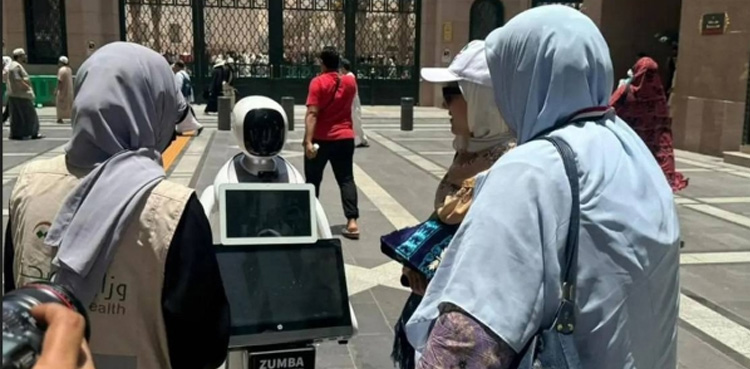
ISLAMABAD: The Kingdom of Saudi Arabia has made significant progress in improving the journey during the 2024Hajj season using data and artificial intelligence (AI) technology.
This year's programme, the Mecca Project, used this technology at 11 airports in 7 countries and 14 entry points for passengers arriving into the country. Each entry point is equipped with 1,092 workstations equipped with accurate biometric capture and recording devices and is managed by a national team of experts working 24 hours a day to ensure no interference occurs. Dr. Abdullah bin Sharaf Al Ghamdi, Chairman of Smart Authority (SDAIA), said that the use of artificial intelligence improves the management of Hajj operations, increases productivity, efficiency and safety. The cooperation of various government agencies ensures the best service for travelers. Al Ghamdi highlighted SDAIA's continuous efforts to improve its services during the Hajj by integrating these services into the annual plan to facilitate pilgrims' access to the Kingdom through the digitalization of airports and cross-border services.
These projects help create a more harmonious, integrated andefficient Hajj. These services include the smart platform Basier and Sawaher. It uses the country's algorithms to monitor and control the crowds in the Grand Mosque, control and facilitate movement, and ensure safety and security. Bin Abdulaziz Al-Saud, Prime Minister and Chairman of the SDAIA Board of Directors.
This support is essential for the Pilgrim Experience Programme, which is a key part of Saudi Arabia's Vision 2030, to achieve its goals and record video field and thermal camera images. Technology increases the comfort and mobility of pilgrims by improving security measures in Hajj sites.
This year, Sawaher's coverage area was expanded to include the general area around the Grand Mosque, Mecca's highways, tunnels, holy sites and underground routes leading to this area.
The program has launched more than 315 digital services to improve the travel experience. Services include air gates, Quran readings, qibla directions, display of digital pilgrim cards (Nusuk), entry permits for vehicles and Hajj personnel, ambulance requests and SOS service. Services such as supporting the Hajj, providing food and water, and facilitating rituals (Nusuk) for first-time pilgrims through the Adahi digital app and Adahi distribution. It uses data and artificial intelligence to improve the pilgrimage experience and enable pilgrims to perform their religious duties more easily and comfortably.





.jpg)


0 Comments